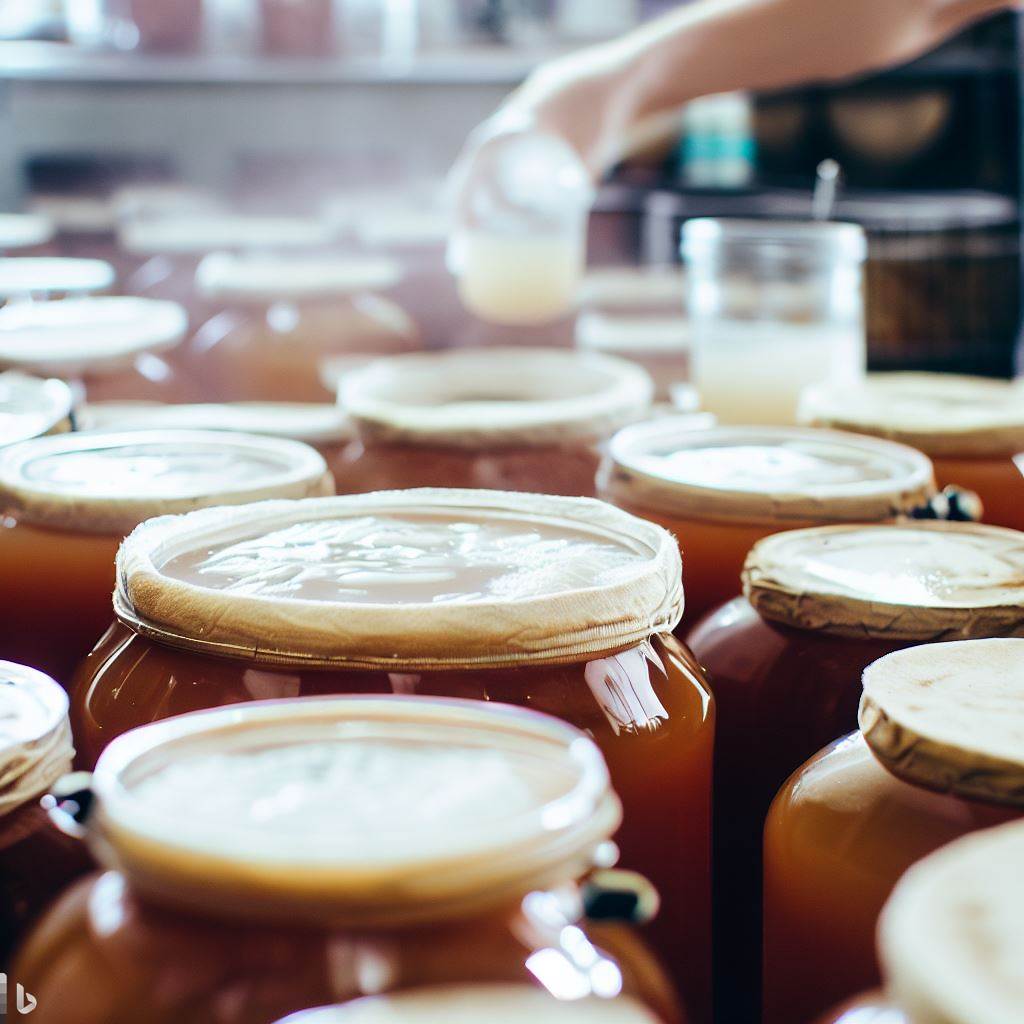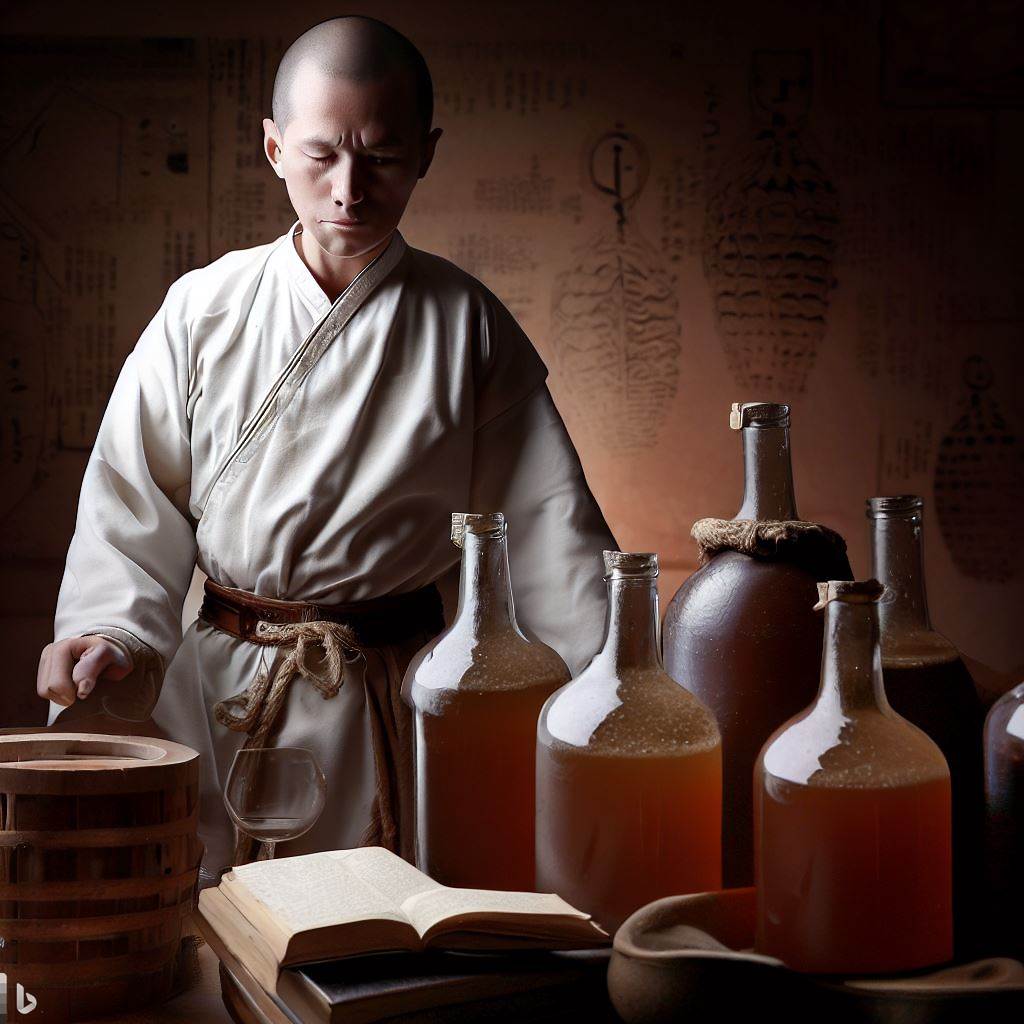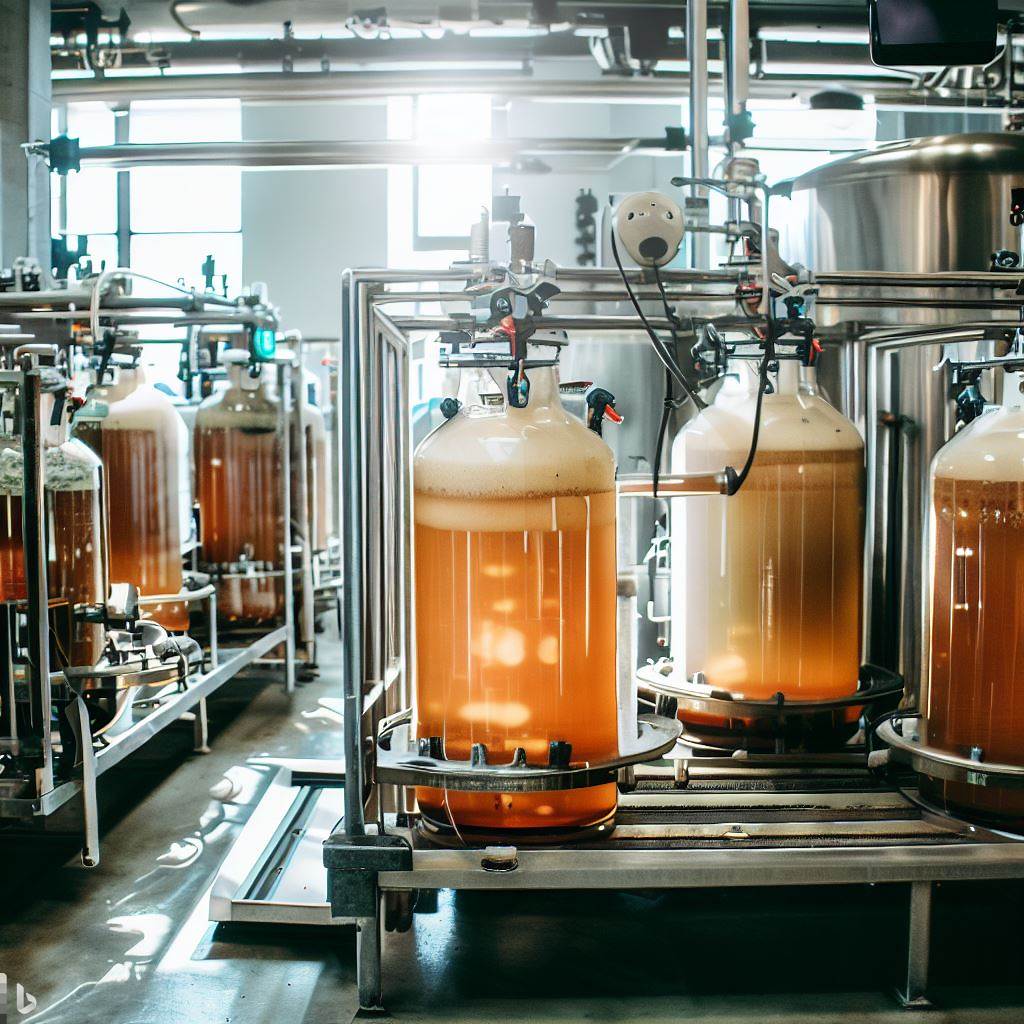Unraveling the Mystery: Who Invented Kombucha? This article delves into the origins of this popular drink, its journey across continents, and its rise to fame in the global market.
Kombucha is believed to have originated in the Bohai Sea district in China, where it was traditionally consumed. By the early 20th century, it had made its way to Russia, then other parts of Eastern Europe and Germany. Today, kombucha is homebrewed globally and also bottled and sold commercially. As of 2019, the global kombucha market was worth approximately US$1.7 billion.
The Ultimate Guide of Origins and History of Who Invented Kombucha

Kombucha Production
The production of kombucha involves a symbiotic fermentation of sugared tea using a symbiotic culture of bacteria and yeast (SCOBY), often referred to as a “mother” or “mushroom”. The microbial populations in a SCOBY vary, but the yeast component generally includes Saccharomyces cerevisiae, along with other species. The bacterial component almost always includes Gluconacetobacter xylinus to oxidize yeast-produced alcohols to acetic acid and other acids. Despite the SCOBY being commonly called “tea fungus” or “mushroom”, it is actually “a symbiotic growth of acetic acid bacteria . The living bacteria are said to be probiotic, one of the reasons for the popularity of the drink.

History of Kombucha
Now that we know “Who Invented Kombucha”, the history of kombucha is fascinating. It most likely originated in China and was consumed in Russia before entering the rest of Europe. Its consumption increased in the United States during the early 21st century. With an alcohol content of less than 0.5%, kombucha is not a federally regulated beverage in the United States. However, prior to 2015, some commercially available kombucha brands were found to contain alcohol content exceeding this threshold, sparking the development of new testing methods. With rising popularity in developed countries in the early 21st century, kombucha sales increased after it was marketed as an alternative to beer and other alcoholic drinks in restaurants and pubs.

The etymology of kombucha is uncertain; however, it is speculated that it is a misapplied loanword from Japanese. English speakers may have mistaken the Japanese word kombucha to mean fermented tea, when in fact, fermented tea in Japanese is called kōcha kinoko. The first known use in the English language of the word kombucha to describe “a gelatinous mass of symbiotic bacteria (as Acetobacter xylinum) and yeasts (as of the genera Brettanomyces and Saccharomyces) grown to produce a fermented beverage held to confer health benefits” was in 1944.
The Legend of Kombucha
According to popular legend, kombucha was said to have been named after a Korean physician named Kombu, who brought the tea to Japan for its health benefits. Another tale tells the story of a Chinese emperor who received the “Elixir of Life” from a hermit, which was believed to be kombucha. These mythical narratives speak to the reverence and fascination people had with this extraordinary beverage.
Spread of Kombucha to Other Cultures
From its roots in ancient China, kombucha made its way across Asia and beyond. It reached Japan, Korea, and Russia, where it became an integral part of their respective cultures. Each region put its own spin on the fermentation process, resulting in unique variations of kombucha. These cultural adaptations contributed to the rich tapestry of kombucha’s history and diversity.
Early Uses and Benefits of Kombucha
Medicinal Properties of Kombucha
Throughout history, kombucha has been hailed for its potential health benefits. Traditional practitioners in China and other parts of Asia believed that kombucha could boost the immune system, aid digestion, and detoxify the body. The fermentation process produces a variety of bioactive compounds, including organic acids, vitamins, and enzymes, which may contribute to its therapeutic properties.
Historical Usage of Kombucha
Kombucha was revered for its healing properties and was often consumed as a tonic or elixir. It was used to alleviate ailments such as arthritis, digestive issues, and fatigue. The ancient Chinese referred to it as the “Tea of Immortality,” attributing longevity and vitality to its regular consumption.
Kombucha in Traditional Medicine
In traditional Chinese medicine, kombucha was considered a powerful remedy for balancing the body’s energy, or Qi. It was thought to tonify the spleen and stomach, promote healthy digestion, and support liver function. Kombucha was incorporated into herbal formulations and prescribed for various health conditions, emphasizing its role as a natural therapeutic agent.
The Modern Discovery and Popularization of Kombucha
Kombucha in Russia

Fast forward to the late 19th century, and kombucha found its way to Russia. It was during this time that its medicinal potential caught the attention of scientists and physicians. Russian researchers, such as Nobel laureate Dr. Alexander Fleming, began studying kombucha’s antimicrobial properties and its potential for combating infectious diseases.
Kombucha in Europe and North America
In the early 20th century, kombucha began to gain popularity in Europe and North America. Its introduction was largely credited to Eastern European immigrants who brought their brewing traditions with them. Kombucha enthusiasts embraced its unique taste and believed in its health benefits, leading to a gradual spread of kombucha culture across these regions.
Kombucha’s Commercial Success
With the rise of health-conscious consumers in recent decades, kombucha has experienced a remarkable surge in popularity. The increasing demand for natural and functional beverages propelled kombucha into the mainstream. Today, kombucha can be found in supermarkets, health food stores, and even on tap in trendy cafés. Its widespread availability has made it a beloved choice for those seeking a flavorful and probiotic-rich alternative to conventional beverages.
The Inventor of Modern Kombucha
- The Contribution of Dr. Rudolph Skelnar
While kombucha has a rich and ancient history, it was Dr. Rudolph Skelnar, a German scientist, who played a pivotal role in modernizing kombucha and making it accessible to a wider audience. Dr. Skelnar dedicated his life to researching and promoting the therapeutic potential of kombucha. His scientific endeavors propelled kombucha into the realm of alternative health practices.
Dr. Skelnar’s Research and Innovations
Dr. Skelnar’s research focused on studying the metabolic byproducts of kombucha fermentation. He discovered that kombucha contains a wide array of beneficial organic acids, including acetic acid, glucuronic acid, and lactic acid. These acids are believed to contribute to the detoxifying and antioxidant properties of kombucha. Dr. Skelnar’s findings provided a scientific foundation for the burgeoning interest in kombucha as a health-enhancing beverage.
Kombucha’s Impact on Alternative Health
Dr. Skelnar’s contributions to the understanding of kombucha’s health benefits sparked a revolution in the alternative health community. Kombucha became a cornerstone of holistic wellness practices, attracting devoted followers who extolled its virtues. Today, kombucha is often celebrated for its potential to support gut health, improve digestion, and enhance overall well-being.
Kombucha Today: Industry and Cultural Impact

The Booming Kombucha Market
In the modern era, kombucha has evolved from a niche health elixir to a thriving industry. The global kombucha market has experienced exponential growth, with an increasing number of companies entering the fray. Kombucha brands now offer a myriad of flavors and formulations, catering to diverse consumer preferences. The market’s rapid expansion reflects the widespread acceptance and demand for kombucha as a mainstream beverage.
Kombucha in the Health and Wellness Movement
Kombucha’s rise in popularity can be attributed to the larger health and wellness movement sweeping the globe. Consumers are increasingly conscious of their dietary choices and seek functional foods and beverages that align with their well-being goals. Kombucha’s probiotic nature and potential health benefits align perfectly with the prevailing desire for natural and nourishing products.
Kombucha’s Popularity in the Food and Beverage Industry
Beyond its perceived health benefits, kombucha has also captivated the culinary world. Chefs and mixologists have embraced kombucha as a versatile ingredient, incorporating it into innovative recipes and concoctions. From kombucha-infused cocktails to kombucha-marinated dishes, its tangy and effervescent qualities add a unique twist to culinary creations. Kombucha’s versatility has made it a favorite among food enthusiasts and professionals alike.
Final Thoughts

The journey of “who invented kombucha” from its humble beginnings in China to its global popularity today is a testament to the enduring appeal of this beverage. As we continue to explore the benefits and potential of kombucha, we can only expect its popularity to grow. Well, who invented kombucha? We now know the exact origins remain a mystery, the impact of this fermented tea drink is undeniable. Now, the question is, have you tried kombucha yet? See our best brands to buy.
Youtube Source of information on this topic if interested in checking this out for a deeper dive.
FAQs – Who Invented Kombucha
Q1: Is kombucha suitable for everyone? We know kombucha is generally safe for consumption, individuals with compromised immune systems or certain medical conditions should exercise caution. It’s advisable to consult with a healthcare professional if you have any concerns or underlying health issues.
Q2: Can I brew kombucha at home? Absolutely! Brewing kombucha at home can be a fun and rewarding experience. However, it’s important to follow proper sanitation practices and obtain a high-quality SCOBY (symbiotic culture of bacteria and yeast) to ensure a successful fermentation process.
Q3: Does kombucha contain alcohol? Yes, kombucha naturally contains a small amount of alcohol, typically ranging from 0.5% to 2%. However, commercially available kombucha is regulated to ensure that the alcohol content remains below a certain threshold.
Q4: Can kombucha help with weight loss? While kombucha is low in calories and may support digestive health, it is not a magical weight loss elixir. It’s best to approach weight loss holistically by maintaining a balanced diet, regular exercise, and a healthy lifestyle.
Q5: How long does kombucha last? When properly stored, kombucha can last for several months in the refrigerator. However, its taste and carbonation may diminish over time. It’s recommended to consume kombucha within a reasonable timeframe to enjoy its optimal flavor and effervescence.
Thanks for reading this GMK Blog Post on Who Invented Kombucha. Read on!







